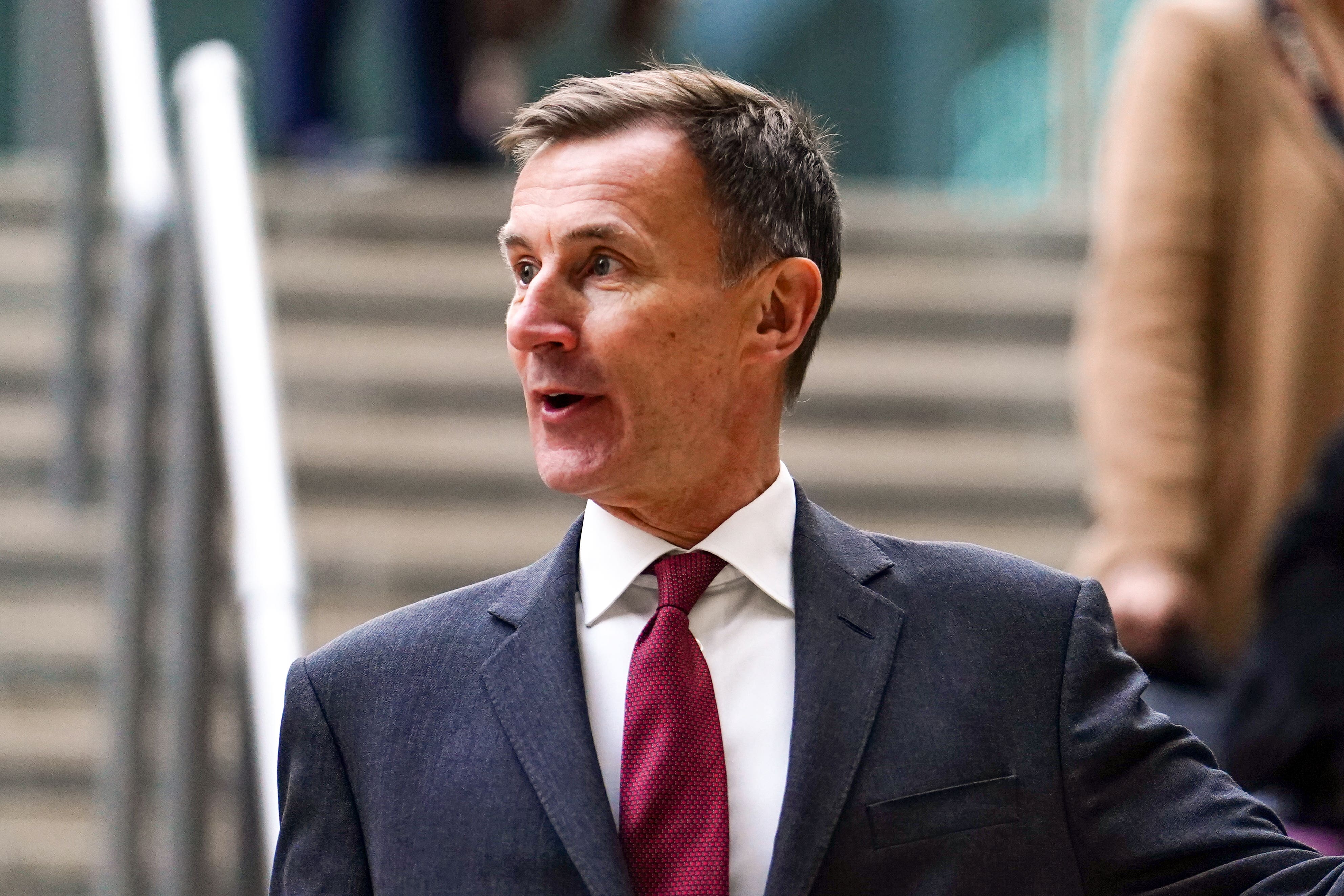Surprise January surplus shows Jeremy Hunt has Budget wiggle room
Will he listen to his party and indulge in tax cuts or a country that wants strikes settled and better public services? The Tories might be better served by the latter with an election looming but they refuse to see it, writes James Moore


This year could scarcely have got off to a better start for the public finances; January turned in a surplus of £5.4bn. The first month is traditionally a good one for the Exchequer because it is when the deadline falls for submitting and paying self-assessment tax returns, but there weren’t many expecting it to be this good.
The Office for National Statistics said the 2023 tax season produced record receipts, even after a one-off payment of historic customs duties owned to the EU. A Reuters poll of economists had predicted a £7.9bn deficit; that delivers a theoretical £13.3bn swing in the Treasury’s favour.
So are gleeful Treasury officials humming We’re in the Money? No, and not just because of how bad that made former Sainsbury’s boss Mike Coupe look when he was caught on camera doing so before a TV interview.
Jeremy Hunt is keen to project an image of sober responsibility, all the more so given the pressure he has been coming under from deluded Trussites who want him to have a second go at bankrupting the country. This might explain the gloomy tone of his press release in response to the numbers, in which he wheeled out his favourite line about “tough choices” and stressed the importance of the government’s plan to reduce debt “over the medium term”.
Treasury spin doctors helpfully put together a list of glum bullet points to underline the point. We were, for example, warned about debt at “its highest level since the 1960s” and told that the in-fashion-again Office for Budget Responsibility (OBR) expects “borrowing this financial year to be more than double pre-pandemic levels”.
So no pulling of streamers left over from Boris Johnson’s parties. The actual picture is indeed not quite as rosy as the headline number. The government’s energy support schemes haven’t proven to be anything like as expensive as initial estimates suggested but Hunt is still spending billions subsidising the bills of householders and businesses. Inflation also remains stubbornly high, which makes debt interest very expensive (even if it also improves things such as VAT receipts).
Another point to bear in mind is how choppy these figures are. There was inevitably some sniping at forecasters because of the scale of their “miss”. But the monthly reports on the public finances are always highly voltaile, which makes them a forecaster’s nightmare. Next month’s could just as easily surprise on the downside as the up.
So should we take Hunt’s sober assessment at face value? Up to a point. Capital Economics says: “After 10 months of the 2022-23 fiscal year, cumulative borrowing is a whopping £30.6bn lower (on a like-for-like basis after stripping out different student loan assumptions) than the OBR anticipated.”
The OBR is due to produce a fresh set of forecasts alongside next month’s Budget. Historically, it has taken a somewhat rosier view of things than other agencies that pronounce on the same sort of things. So that’s in Hunt’s favour too.
The upshot is that he has a fair bit of wiggle room. How will he choose to use that? Tory MPs are still baying for tax cuts. The public, on the other hand, would clearly like reliable public services and a resolution to the strikes that have been plaguing them. There is still a considerable degree of sympathy with the strikers.
Hunt’s decision thus amounts to choosing between his party and his country. The irony is that the Tories would probably be a principal beneficiary of Hunt choosing country, if only they could see it.



Join our commenting forum
Join thought-provoking conversations, follow other Independent readers and see their replies
Comments